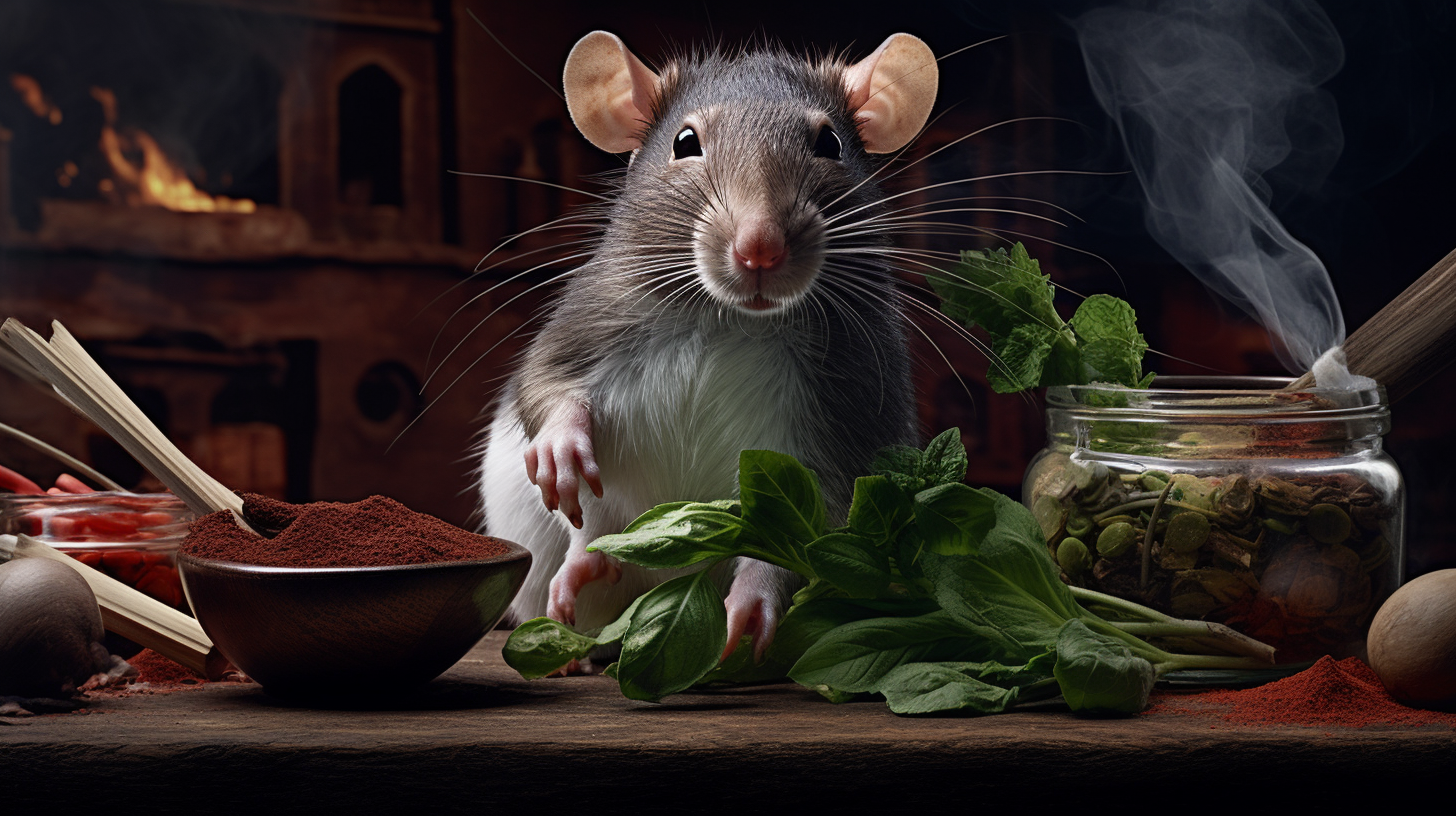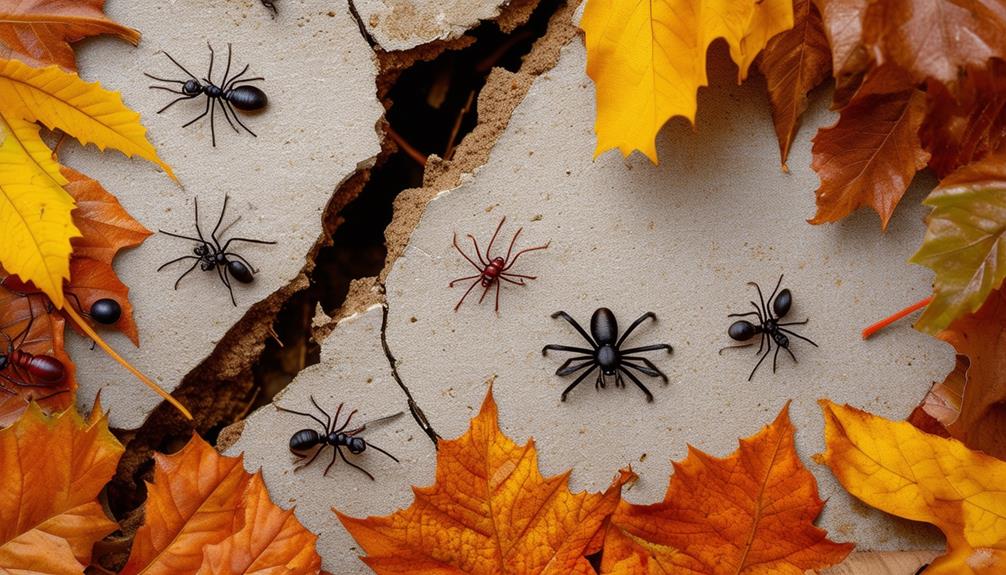Rats, as pests, can be a source of distress and a potential health hazard in various environments. When dealing with a rat infestation, it is essential to understand effective methods of deterring them. One approach is to utilize odors that rats find repulsive, as they rely heavily on their sense of smell.
This article aims to explore the question, ‘What smell do rats hate the most?’by examining several common scents that are known to repel these rodents. By understanding and harnessing the power of these odors, individuals can take proactive measures to protect their homes and facilities from rat infestations.
One scent that rats are known to despise is peppermint oil. The strong aroma of peppermint is often used as a natural and non-toxic rat repellent. It overwhelms their sensitive olfactory system, making the environment inhospitable for them.
Another scent that rats find offensive is ammonia. The pungent smell of ammonia can be created by mixing it with water and distributing it in areas where rats are likely to frequent. The strong odor acts as a deterrent, discouraging rats from entering or remaining in the treated areas.
Additionally, cayenne pepper, garlic, and eucalyptus are other scents that rats tend to detest. These odors can be employed similarly to peppermint oil and ammonia, creating an environment that is unappealing to rats and reducing the likelihood of infestation.
Peppermint Oil
Peppermint oil has been found to elicit a strong aversive response in rats, making it an effective deterrent against these rodents. The benefits of using peppermint oil as a natural rat repellent are numerous.
Firstly, peppermint oil is a non-toxic and environmentally friendly solution, making it a safe alternative to chemical rat repellents. It is derived from the peppermint plant, which contains high levels of menthol, a compound that rats find extremely unpleasant. When exposed to peppermint oil, rats experience a strong sensory aversion, causing them to avoid areas where the oil is present.
To effectively use peppermint oil to get rid of rats, there are a few key steps to follow. First, identify the areas where rats are most active, such as nesting sites or entry points. Next, dilute the peppermint oil with water in a spray bottle, using a ratio of 10 drops of oil to 1 cup of water. Shake the bottle to ensure the oil is evenly mixed with the water. Then, spray the mixture generously in the identified areas, making sure to cover surfaces and crevices where rats may hide or travel. It is important to reapply the oil regularly, as its scent may wear off over time.
By consistently using peppermint oil as a natural rat repellent, homeowners can effectively deter rats from their property.
Transitioning to the subsequent section about ammonia, another strong-smelling substance that rats dislike, it is important to explore alternative options for rat repellents.
Ammonia
Ammonia, a pungent and caustic compound commonly used for cleaning and disinfection, has been found to elicit strong aversive responses from rodents such as rats due to its intense and noxious odor.
The following are three reasons why rats find the smell of ammonia repulsive:
- Overwhelming odor: Ammonia has a distinctive, sharp smell that can be overpowering to rodents. Rats have a highly sensitive sense of smell, and the strong scent of ammonia can be extremely unpleasant for them. The potent nature of ammonia odor can even cause discomfort and irritation to rats, leading them to avoid areas where this compound is present.
- Potential health risks: While ammonia is commonly used as a cleaning agent, its strong fumes can have adverse effects on both humans and animals. In high concentrations, exposure to ammonia can irritate the respiratory system and mucous membranes. Rats, being small creatures, are particularly vulnerable to the harmful effects of ammonia. The strong odor can cause respiratory distress and even lead to respiratory failure in severe cases.
- Alternative options and safety precautions: Due to the potential risks associated with ammonia, it is essential to explore safer alternatives for rodent control. There are several ammonia alternatives available in the market that are effective in repelling rats without the need for harmful chemicals. Additionally, when using ammonia or any other rat repellent, it is important to take safety precautions such as wearing protective gloves and using the compound in well-ventilated areas.
Transitioning into the subsequent section about ‘cayenne pepper,’ it is worth exploring another natural rat repellent that has gained popularity due to its effectiveness and safety.
Cayenne Pepper
Cayenne pepper, a fiery and pungent spice derived from dried chili peppers, has emerged as a popular natural repellent for rodents due to its potent and intense flavor. Rats, in particular, are known to have a strong aversion to the smell of cayenne pepper, making it an effective deterrent for keeping them away from homes and gardens. This spice contains a compound called capsaicin, which is responsible for its spiciness and also acts as a natural irritant for rats. When rats come into contact with cayenne pepper or smell its strong aroma, it causes discomfort and a burning sensation in their nasal passages, making them flee the area.
To further understand the impact of cayenne pepper as a rat repellent, let’s take a look at the following table that highlights its benefits and provides a glimpse into some popular cayenne pepper recipes:
| Benefit | Description | Recipe |
|---|---|---|
| Natural deterrent | Cayenne pepper acts as a natural deterrent for rats due to its potent and intense flavor. | Cayenne pepper spray: Mix 1 tablespoon of cayenne pepper powder with 1 quart of water. Spray the solution in areas where rats are likely to be present. |
| Cost-effective | Cayenne pepper is readily available and affordable, making it a cost-effective solution for rat control. | Cayenne pepper sachets: Fill small cloth sachets with cayenne pepper powder and place them strategically around the house or garden to repel rats. |
| Non-toxic | Unlike chemical rat repellents, cayenne pepper is non-toxic and safe for use around children and pets. | Cayenne pepper paste: Create a paste by mixing cayenne pepper powder with water. Apply the paste to areas where rats may be entering your home or garden. |
| Versatile | Apart from its rat-repellent properties, cayenne pepper is also commonly used in cooking and has various health benefits. | Spicy cayenne pepper sauce: Combine cayenne pepper powder with vinegar, garlic, and other spices to create a flavorful hot sauce for your meals. |
As we transition into the subsequent section about ‘garlic’, it is worth noting that garlic is another natural ingredient that rats dislike. By exploring the potent smell and properties of garlic, we can further understand its potential as a rat repellent.
Garlic
Garlic, a pungent and aromatic bulb commonly used in cooking, is a natural ingredient that has shown potential as a repellent for rodents due to its strong odor and properties.
As a natural rat repellent, garlic emits a powerful scent that is known to repel rats and other pests. Rats have a highly developed sense of smell, and the strong odor of garlic can be overwhelming for them. This makes garlic an effective deterrent in keeping rats away from certain areas.
One of the benefits of using garlic as a rat deterrent is that it is a natural and non-toxic solution. Unlike chemical repellents, which may have harmful effects on humans and the environment, garlic provides a safe alternative. It is readily available and can be easily incorporated into various forms, such as garlic cloves, garlic powder, or garlic oil. Additionally, garlic is affordable and can be a cost-effective solution for rat control.
Transitioning to the subsequent section about ‘eucalyptus,’ another natural rat repellent, it is important to explore its potential benefits and effectiveness in deterring rats.
Eucalyptus
Eucalyptus, a tree native to Australia, has gained attention for its potential as a natural rat repellent due to its distinct aroma and chemical composition. Eucalyptus trees are known for their oil-rich leaves, which contain a compound called eucalyptol.
This compound is responsible for the characteristic scent of eucalyptus and is also known for its antimicrobial and insect-repellent properties. Eucalyptus essential oil, derived from the leaves of the tree, has been used for various purposes, including pest control.
Its strong scent is believed to be unpleasant for rats, making it an effective natural deterrent. Additionally, eucalyptus has been found to have other benefits, such as relieving respiratory issues and promoting relaxation. This makes it a versatile option for those looking for a natural solution to repel rats while enjoying the aromatherapy benefits of eucalyptus essential oil.
Eucalyptus has gained popularity as a natural rat repellent due to its distinct aroma and chemical composition. The eucalyptol compound found in eucalyptus leaves and essential oil is known for its antimicrobial and insect-repellent properties.
By incorporating eucalyptus essential oil into pest control strategies, individuals can potentially deter rats while enjoying the additional benefits of respiratory relief and relaxation.
Frequently Asked Questions
Are there any other natural scents or substances that rats are known to dislike?
Natural scents and substances that repel outdoor rats include peppermint oil, ammonia, and mothballs. These scents are known to be disliked by rats and can help deter them from infesting certain areas.
Can these smells be used to repel rats in outdoor areas as well?
Effective methods for repelling rats in outdoor areas include using certain smells. However, the effectiveness of these smells in repelling rats is still debated and requires further research. Alternative approaches for outdoor rat control include non-smell based repellents such as ultrasonic devices or physical barriers.
Are there any potential health risks or side effects associated with using these smells to deter rats?
Potential risks associated with using natural scents to deter rats include allergic reactions, respiratory irritation, and skin irritation. However, the effectiveness of these scents in repelling rats in outdoor areas is still being researched.
How long does the scent of these repellents typically last before needing to be reapplied?
The duration of the scent of rat repellents varies depending on various factors such as the type of repellent used, environmental conditions, and rat behavior. It is important to regularly reapply repellents to effectively deter rats. Additionally, studies have shown that rats can develop a tolerance to certain smells over time, necessitating the use of different repellents or strategies to maintain their effectiveness.
Are there any specific precautions or guidelines to follow when using these smells to repel rats in indoor spaces?
When using smells to repel rats indoors, it is important to take certain precautions. Ensure proper ventilation, avoid direct contact with the smell, and follow instructions on application to effectively repel rats without causing harm to humans or pets.





